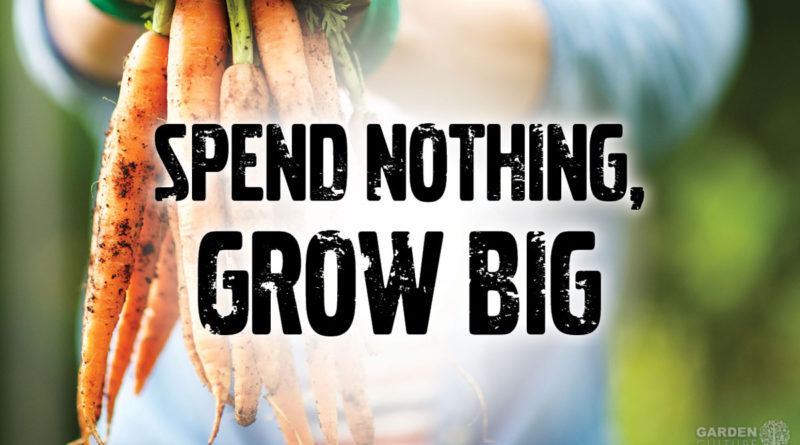No-Cost Solutions To Growing More In Your Garden
Are you looking for bigger, better results in the garden at no extra cost and without the help of man-made fertilizers? Here are some tips that can make a difference. The best part? They’re easy and free to execute in any outdoor garden space.
Homemade Compost

Soil and microbes need food, and the better the quality it is, the richer the soil will be. Excellent compost is the key to any successful garden.
Compost is made from organic matter such as vegetable peelings, fruit waste, tea bags, plant prunings, grass cuttings, and even cardboard egg boxes and paper. It adds nutrients and beneficial microorganisms to your soil and improves water retention and drainage so you can boost yields in the garden.
Composting is also a great way to dispose of food waste; it’s easy to make and is super eco-friendly.
Get Mulching

Mulch is a layer of organic material that you place on top of your garden beds to protect and assist the plant’s growth.
Mulching helps reduce the evaporation of water from the soil, so you don’t have to irrigate too often. It also allows for better water and air movement through the earth and prevents weeds.
Mulch is a great insulator and keeps the soil cooler in the summer, which your roots will love, and warmer in cool months, making nutrient uptake easier.
Make mulch with items such as cardboard, newspapers, lawn clippings, shredded leaves, straw, plant cuttings, and overgrowth.
No-Dig Gardens

Switching to a no-dig vegetable garden can help boost your garden’s output. Raised beds that aren’t walked upon or dug up will produce a protective environment for microbes, mycorrhizal fungi, worms, and other bugs, which all help maintain soil fertility and increase carbon levels.
A no-dig approach also reduces the amount of physical labor required in the garden, which is equally as much of a “win”.
Encourage Bees

Bees are primary pollinators and are vital to reproductive processes, and therefore, the survival of many species of plants.
Leaving plants and weeds to flower is a great way to provide forage for bees, as is planting wildflower seeds. Pile some dead wood in a quiet corner to create an alluring habitat for them to settle. Be mindful of pesticides, which are very harmful to the bee population.
Seeds and Cuttings

Saving seeds is practical and allows you to breed unique varieties of plants that have adapted to your garden’s specific climate and soil conditions. This gives you a best-fit version of your chosen crop, which can result in lower instances of disease and pests along with bigger and better yields.
Cuttings can also be used to increase the number of plants in the garden. Cuttings are further along in the growth cycle than seeds, so will root quickly and reach harvest in less time.
Collect Rainwater

Rainwater can help boost plant growth, development, yield, quality, and flavor.
Rainwater is an ecologically sound, natural, and cost-free way to feed your plants. Plants will benefit, as rainwater contains fewer contaminants than tap water, especially chlorine, which can destroy soil microbes and inhibit plant growth.
Rainwater is also generally warmer in temperature than tap water. The plant’s roots won’t go into shock, causing damage or delaying growth and development.
Rich Hamilton
An industry veteran with over 20 years experience in a variety of roles, Rich is currently a business development manager for a large UK hydroponics distributor. The author of The Growers Guide series, Rich also writes on all aspects of indoor gardening, as well as being an independent industry consultant working closely with hydroponic businesses worldwide.
Latest posts by Rich Hamilton (see all)




